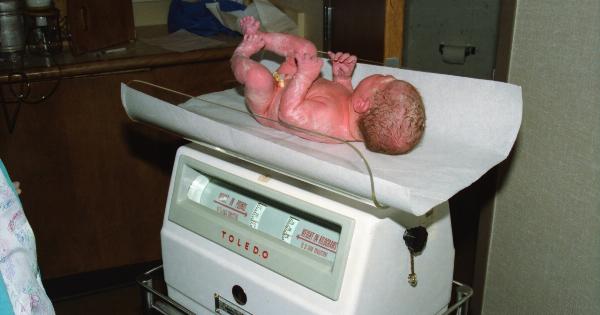Being a new parent is stressful enough, but imagine being faced with the challenges of a heavyweight newborn. While most newborns weigh between 5 and 8 pounds, heavyweight babies are those who weigh over 8 pounds at birth.
While it’s normal for babies to come in all shapes and sizes, there are some unique considerations that come with heavyweight newborns.
In this comprehensive guide, we’ll explore everything you need to know about caring for a heavyweight baby, from what to expect at birth to tips for feeding, clothing, and more.
What is a Heavyweight Newborn?
A heavyweight newborn is defined as a baby who weighs over 8 pounds at birth. According to the Centers for Disease Control and Prevention (CDC), less than 10 percent of all newborns in the United States weigh over 8.5 pounds.
While being a heavyweight newborn isn’t necessarily a cause for concern, it does come with some unique considerations for parents and medical professionals.
What Causes Heavyweight Newborns?
There are a number of factors that can contribute to a baby being born with a higher birth weight. These may include:.
- Genetics: If one or both parents were born with a higher birth weight, their child may be more likely to be born with a higher birth weight as well.
- Maternal factors: Mothers who are overweight, diabetic, or who gain excessive weight during pregnancy may be more likely to have a heavyweight baby.
- Gestational age: Some babies simply have longer gestational periods than others, which can lead to a higher birth weight.
What are the Risks Associated with Heavyweight Newborns?
While being a heavyweight newborn is not inherently dangerous, there are some potential risks associated with a higher birth weight. These may include:.
- Shoulder dystocia: This is a condition that occurs when the baby’s head passes through the birth canal, but the shoulders become stuck. This can be a medical emergency and may require intervention from medical professionals.
- Birth complications: Babies who are born with a higher birth weight may be more likely to experience birth complications such as low blood sugar or breathing difficulties.
- Obesity: While birth weight alone is not a predictor of future obesity, babies who are born with a higher birth weight may be more likely to become overweight or obese later in life.
What to Expect During Labor and Delivery
Prior to labor and delivery, medical professionals will likely monitor a heavyweight baby more closely than other babies to ensure that they are healthy and that there are no complications.
During labor and delivery, healthcare providers will also be more vigilant to signs of potential complications such as shoulder dystocia.
In some cases, doctors may recommend a C-section delivery to minimize the risks associated with a higher birth weight. However, in most cases, a vaginal delivery is still possible and safe for both the mother and baby.
Feeding a Heavyweight Newborn
Like all newborns, heavyweight babies will need regular feedings to ensure that they are growing and getting the nutrients that they need.
Experts recommend feeding newborns 8 to 12 times per day, but may need to adjust this schedule for a heavyweight baby based on their individual needs.
Breastfeeding is the preferred method for feeding a newborn, but formula can also provide the necessary nutrients.
If your baby has trouble latching on or if you have concerns about your breast milk supply, talk to your healthcare provider about possible solutions.
Clothing and Care for Heavyweight Newborns
Clothing a heavyweight baby can be a challenge, as many newborn clothing items may be too small.
Look for clothing that is specifically designed for larger babies or that is labeled as “newborn” but is designed to fit babies up to 12 pounds.
In terms of care, a heavyweight baby will need the same basic care as any other newborn, including regular diaper changes, baths, and skin care. However, be sure to monitor your baby closely for signs of any potential complications or issues.
Conclusion
While having a heavyweight newborn can be intimidating, it’s important to remember that most babies, regardless of size, are healthy and grow up to be happy and active children.
By knowing what to expect and being prepared for the unique considerations that come with a higher birth weight, you can provide the best possible care for your newborn.




























